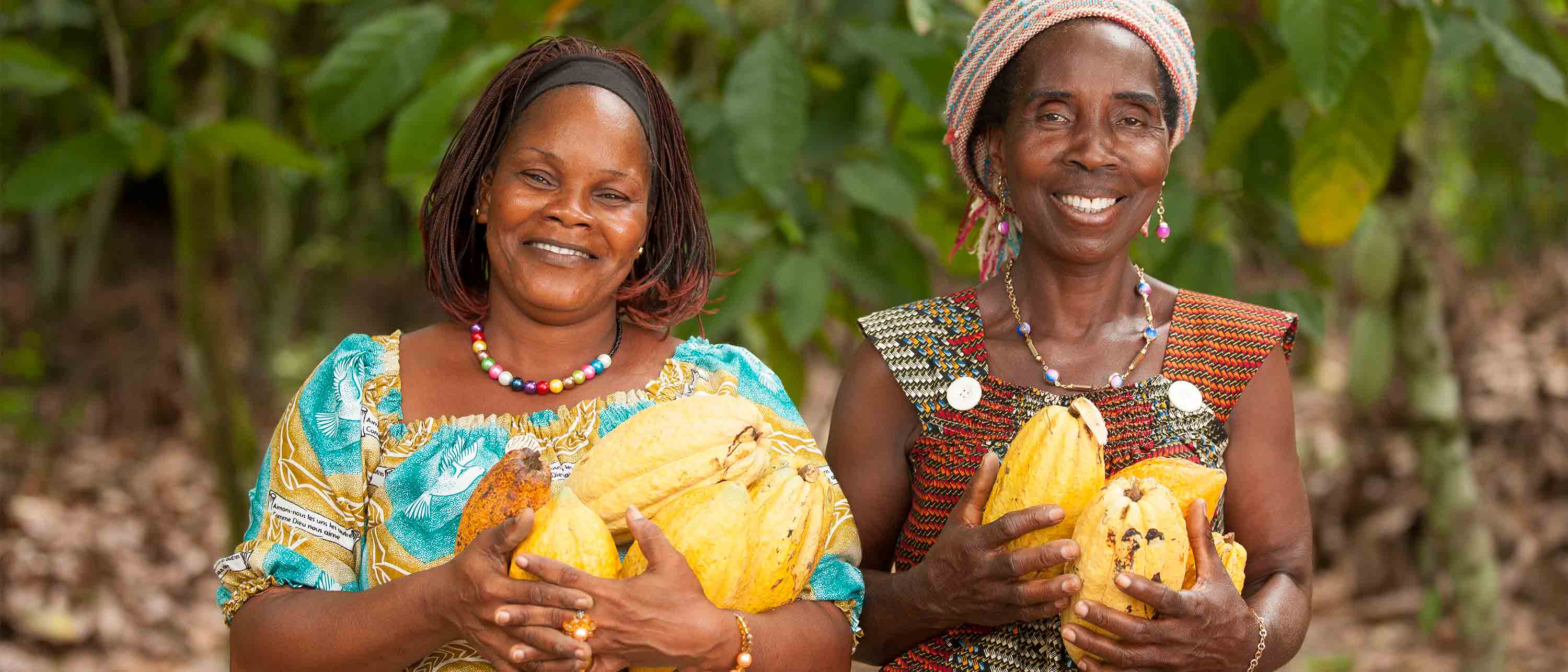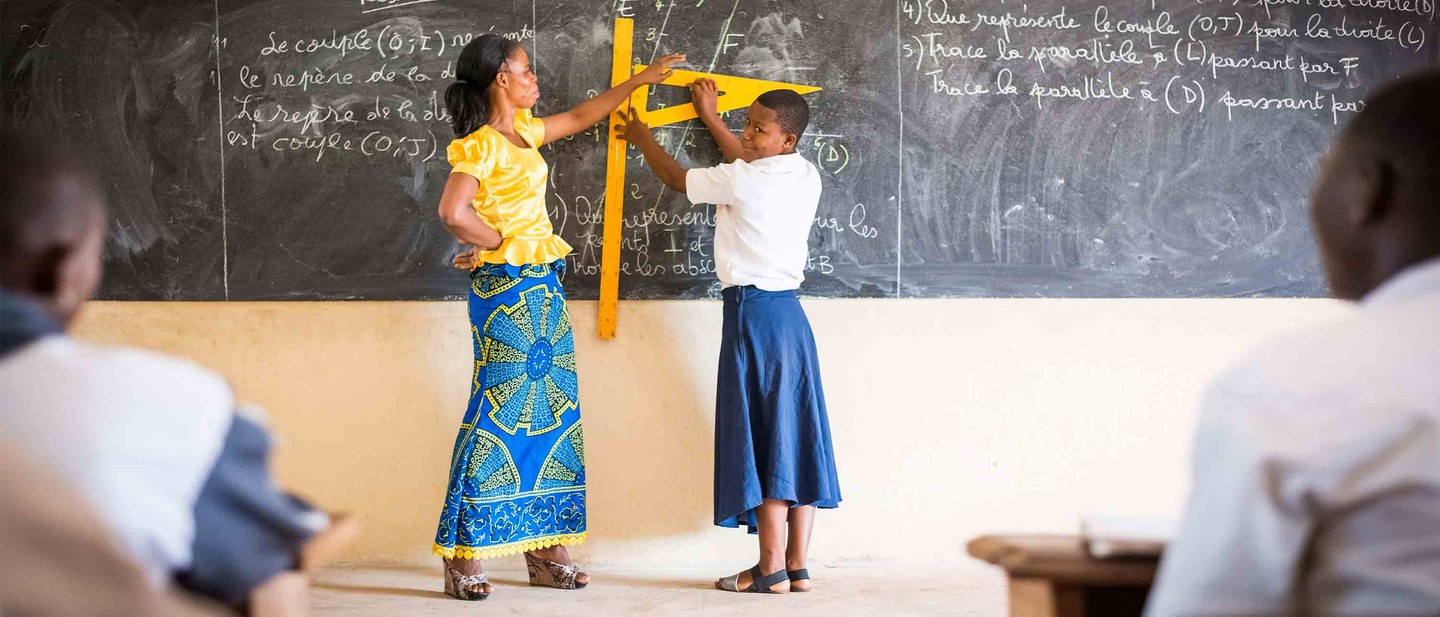PROTECTING THE ENVIRONMENT
Working towards a deforestation-free supply chain
Distributing
3.5 million cocoa seedlings
Increasing
shade and biodiversity
Working
towards a deforestation-free supply chain by 2025
We are committed to a more modern, inclusive and responsible cocoa supply chain for the next generations. A substantial part of this is our ambition to protect the natural environment in our cocoa-growing communities.
This is a pressing issue. As Kim Frankovich, VP of Cocoa Sustainability at Mars Wrigley says, “Farming communities in Côte d’Ivoire and Ghana are feeling the effects of deforestation and climate change. Protecting the forest requires support and action from all in the cocoa supply chain.”
For our Dove Dark products (Dove Dark Chocolate, Dove Dark Almond Promises, Dove Dark Peanut Butter Promises), we buy cocoa that is independently verified as sourced from Rainforest Alliance Certified* farms and use farm mapping to help prevent cocoa from being sourced from forest lands, National parks and Reserves, and Classified Forests. This will help towards our ambition of a deforestation-free cocoa supply chain by 2025. We source cocoa under the mass balance method. Find out more about mass balance sourcing at ra.org/mb(open in new tab).
Helping cocoa farmers, through our suppliers, to be trained in the latest Good Agricultural Practices is also crucial to our work. This helps them to work more efficiently and more responsibly – for their families and for the future. Growing more cocoa on less land helps to preserve forests and to increase the farmer’s income at the same time.
In 2020, a total of nearly 3.5 million cocoa seedlings were distributed to farmers in West Africa through our suppliers. Approximately 1.2 million non-cocoa trees also were distributed to increase shade and biodiversity.
Actions taken today can affect not only the lives of the cocoa-growing communities of today but those of future generations. The forests are not only necessary for their livelihoods but provide natural habitats for plant and animal species and help regulate local rainfall patterns.
“Farming communities in Côte d’Ivoire and Ghana are feeling the effects of deforestation and climate change. Protecting the forest requires support and action from all in the cocoa supply chain.”
Kim Frankovich, VP Cocoa Sustainability Mars Wrigley
Meet Lucas
“I decided to join the project because planting trees will bring back the forest. It has helped me learn about tree species and their economic and environmental role.” Lucas, cocoa farmer in Côte d’Ivoire
Teaching responsible cocoa production
Small-scale farmers are responsible for 90% of global cocoa production. Masnawati is one of the one million cocoa farmers in Indonesia we are helping to build a resonsible cocoa future.

Rainforest Alliance
The Rainforest Alliance (opens in new window) collaborates and supports businesses in their journey towards sustainability.
For our Dove Dark products (Dove Dark Chocolate, Dove Dark Almond Promises, Dove Dark Peanut Butter Promises), we buy cocoa that is independently verified as sourced from Rainforest Alliance Certified farms. We source cocoa under the mass balance method. Find out more about mass balance sourcing at ra.org/mb.
*We source cocoa for our Dove products (Dove Dark Chocolate, Dove Dark Almond Promises, Dove Dark Peanut Butter Promises), under the mass balance method of sourcing. Under this method, certified cocoa and non-certified cocoa may be mixed during processing, shipping and manufacturing. While certified cocoa may not necessarily end up in any particular final product, farmers still benefit from our purchase of cocoa originating from Rainforest Alliance Certified farms. We purchase cocoa that is independently verified as sourced from Rainforest Alliance Certified farms in volumes equivalent to that needed for 100% for these Dove products.


